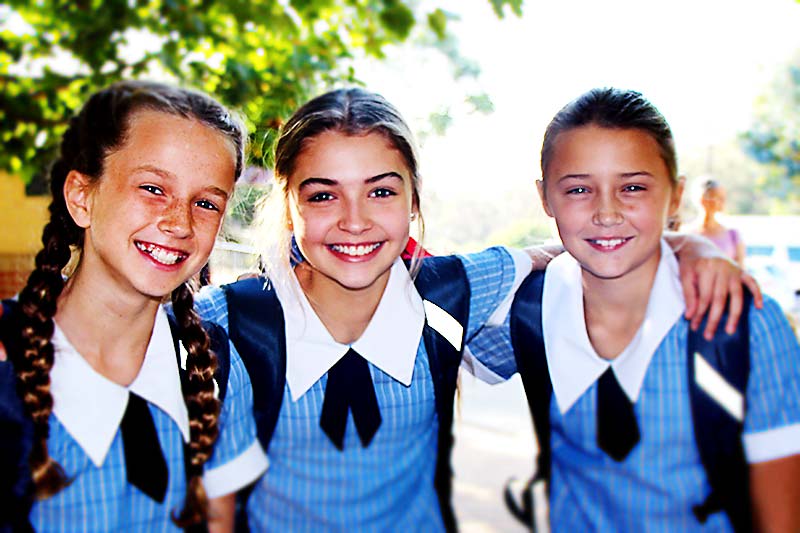
Developing Healthy Friendships
It’s all too common: your child comes home in tears. The kid they thought was their friend talked behind their back. Perhaps it wasn’t just one child but the whole group, and your child feels on the outs. Perhaps it was gossip, rudeness, or just someone being mean.
Friendships and relationships at school have potential for incredible good. At NAC we make a point of upholding wonderful values that are great for friendships: respect, compassion and wisdom. Our staff consistently show respectful behaviour to our young people and to each other, so the model is in front of them.
Sometimes, however, problems emerge. It’s not always easy for students to behave respectfully to each other, and friendship groups contain power dynamics that can change things from day to day. For a young person to navigate through those dynamics successfully they’ll need confidence and excellent communication skills. It comes naturally to some, but for others it’s more difficult.
How do we help at school?
At NAC we want our students to be respectful of each other, so we are helping them develop strategies they can use in hard situations and assisting them to know and understand their feelings.
- Daily mindfulness sessions help students calm themselves, focus their thinking and concentrate on reducing stress.
- Personal Development lessons in social and emotional wellbeing and anti-bullying programs.
- Pastoral Care programs focussing on respectful relationships such as the “Men we Need” program.
- Before school ‘calm space’ in Junior School.
- Brainstorm Productions, which is an award winning in-school theatre production, addressing bullying, cyber safety and resilience. Brainstorm Productions aim to reduce the incidence of bullying in schools and improve student behaviour and wellbeing.
Also, we’re being proactive, giving them specific opportunities, both in Junior and Senior School, to develop positive friendships. Children connect to others just by being involved.
- Co-curricular clubs and sports offer the opportunity to build new skills with a variety of peers in structured environments.
- Before school and lunchtime structured play areas offer a variety of play ideas for focused and imaginative play.
- Targeted friendship and social programs focussing on developing appropriate interactions.
- Community service programs help develop empathy for others.
- Activities for students from Defence families and Aboriginal students.
More knowledge helps
Following new thinking and discoveries about peer relationships can give parents and teachers more understanding of the issues, and more practical ways to help.
Recent research has uncovered how hormones play a part in children’s development of emotional behaviour. Scientists are now focussing on understanding a hormonal surge that happens at about eight years of age, which, they believe, has significant implications for children's social and emotional well-being, also setting the stage for the main event of physical puberty a few years later. (Dunn, 2015). These emotional changes further complicate children’s ability to cope appropriately with friendship issues. (Read more here.)
Help your child develop healthy friendships
It’s a team effort between parents and school when it comes to our wonderful young people. There is plenty families can do at home to assist children in their relationships.
- Talk – Discuss friendships with your child and help them to recognise the positive qualities in themselves and their friends. Talk also about kindness, compassion and empathy, and how your child could be someone who stands up for victims of unkind behaviour. Talk about how to respect and recognise other viewpoints.
- Carefully manage online activity – Young people need a break from the constant ‘being on’ that social media brings with it. Limit phone use and let them rest from social stress.
- Don’t step in too early to “sort out” challenges – Allow your child to develop the social aspects of learning, including letting them know how to manage in the give and take of collaborative activities.
- Join groups outside school – Consider sporting teams, creative and performing arts and youth groups.
- Model respectful behaviour towards others – Be mindful of how you talk about others in front of your children.